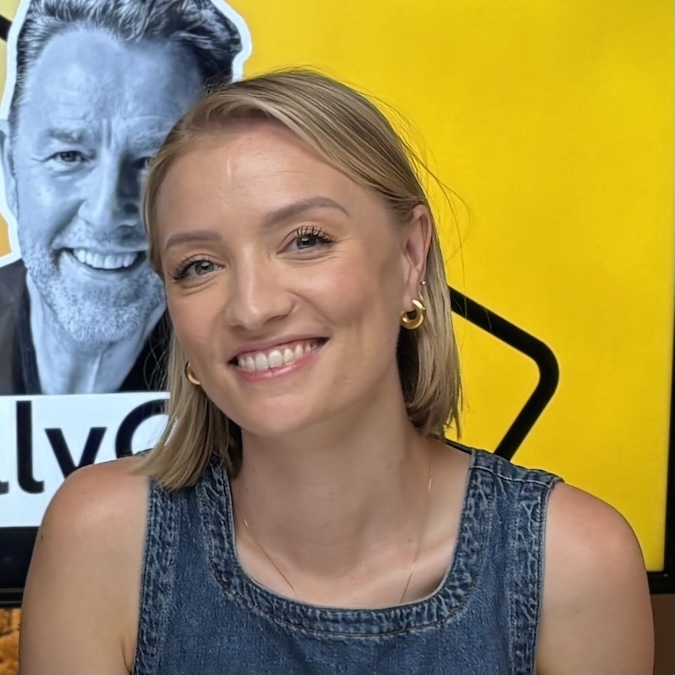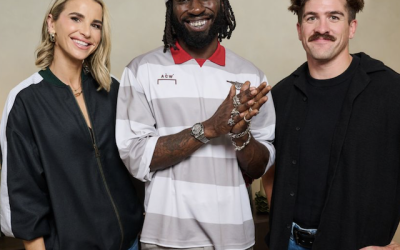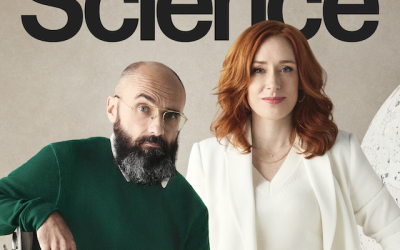In an era where the race for attention is unrelenting and the power dynamics between creators and traditional broadcasters are shifting, Hayley Morris stands out as a rare example of a creator who knows exactly what she wants – and what she won’t give away.
With more than nine million followers across TikTok, Instagram, and YouTube, Morris has built a formidable comedy brand rooted in vertical video and quick-fire sketches. Her humour is distinctly self-deprecating, her characters disarmingly relatable, and her knack for turning life’s smallest humiliations into viral hits has propelled her to the front of the social video landscape.
But as offers arrive from the television world, Morris is holding firm. She has no intention of relinquishing the intellectual property she has spent years nurturing.
“It feels like my baby,” she tells TellyCast. “I’ve grown it. I want to hold it and keep it with me.”
It’s a sentiment that reflects a broader cultural shift among creators who no longer see TV as the pinnacle. The notion that success means a commissioned show on a major broadcaster is being quietly dismantled by a generation of digital-first talent who now wield creative control, own their IP, and speak directly to millions.
Morris’ journey began long before TikTok was part of the cultural lexicon. As a teenager, she uploaded silent films to YouTube, never imagining it would become the social juggernaut it is today. It was years later – after a decade of steady but modest YouTube growth – that she struck gold on TikTok with her ‘Me vs. Brain’ series. In her words, it happened “just in time.” Morris had given herself until the end of 2021 to make it work or walk away from content creation entirely. Her breakout moment arrived on 28 December 2020. By then, there was no turning back.
What followed was a rocket-fuelled rise through social platforms, with Morris gaining tens of thousands of followers each night. But the fast-paced nature of social video comes with its own pressures. Creators often face the relentless demands of the algorithm, and Morris is no exception.
“I feel the pressure to post every Friday,” she admits. “Social media isn’t really set up for you to take a break.”
It’s a tension familiar to many creators. Morris is acutely aware of the risk of burnout and hopes to eventually build a team that can help her maintain momentum without compromising the authenticity her audience loves. For now, she manages every aspect of production herself, from scripting to filming to the all-important edit, which she says she could never delegate.
Recently, she has begun to expand her creative horizons with a series of self-funded short films, including the brilliantly absurd zombie romcom Hangry and the funeral-set comedy Love and Loss. These projects mark a deliberate move towards longer-form storytelling and hint at her ambition to one day produce her own TV series on YouTube, bypassing traditional gatekeepers entirely.
“The dream is to make my own shows and have total creative control,” she says. “YouTube gives you that freedom.”
While the TV industry has shown interest in adapting her popular social formats for broadcast, Morris is wary. What makes her content so appealing online – its lo-fi charm, its rough edges, the unmistakable sense that this is one person’s unfiltered vision – doesn’t always survive the transition to high-gloss television.
“There’s something about the way social video feels. Sometimes when you throw a lot of money at it, it loses what made it special in the first place.”
Morris’ story is a reminder of how the creator economy has matured. It’s no longer about using social platforms as stepping stones to traditional media. For Morris, social video is the destination – and she’s determined to protect the empire she’s built.




